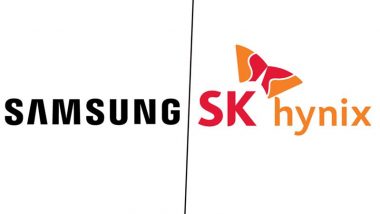
Doug McMillon has been the President and CEO of Walmart Inc. since 2014. Over the past 30 years, he has worked to enhance employee benefits, including initiatives like debt-free college programs.
Additionally, he launched Project Gigaton, which aims to combat climate change. McMillon is also a notable business leader, currently chairing the Business Roundtable. Early Life and Education C.

Douglas McMillon was born on October 17, 1966, in Memphis, Tennessee, to a family that valued education, morality, and community service. Driven by a passion for business, he earned a Bachelor of Science degree in Business Administration from the University of Arkansas. His academic journey provided him with the skills necessary to thrive in the retail industry, setting the stage for his future leadership at Walmart.
McMillon's upbringing, which emphasized integrity and hard work, significantly contributed to his rise as President and CEO of Walmart, marking a successful career in the retail sector. Professional Career: Doug McMillon's career at Walmart began while he was still in high school, when he worked as a summer associate. This experience set him on a successful path within the company.
After earning a bachelor's degree from the University of Arkansas and an MBA from the University of Tulsa, McMillon returned to Walmart, quickly advancing through various roles, including assistant manager and buyer. He then moved to Bentonville to participate in the company’s buyer-training program. In 2005, McMillon was appointed president and CEO of Sam's Club, where he implemented initiatives aimed at supporting small business customers.
In 2009, he became the president and CEO of Walmart International, helping to expand the company’s global reach. McMillon took on the role of Walmart's CEO in 2014, during which he prioritized employee well-being, growth in e-commerce, and sustainability initiatives. Business Intervention in AI: Under Doug McMillon, Walmart has been integrating AI to enhance the customer experience and streamline supply chains.
Some of the key initiatives include: Walmart's AI-Powered Waste Management Solution: Walmart is testing an AI tool designed to predict and prevent waste in its stores. This tool identifies the factors that contribute to waste, suggests corrective actions, and provides data insights to help associates reduce waste efficiently while promoting sustainability. The program is initially being rolled out in Canada through the Walmart associate app.
Adaptive Retail Using AI: Walmart is elevating its Adaptive Retail strategy by incorporating AI, Generative AI, Augmented Reality , and Immersive Commerce to create personalized shopping experiences. The new platform, Wallaby, enhances customer interactions, while Retina AR improves virtual shopping experiences. Walmart aims to redefine retail through hyper-personalized, technology-driven solutions across its global operations.
AI-Driven Operational Efficiency: Walmart is incorporating AI to enhance operational efficiency. Key applications include a customer service chatbot, a generative AI -enabled search feature for personalized shopping, and an AI-driven in-store advisor aimed at reducing waste. These AI initiatives focus on improving user experience, increasing revenue, and promoting sustainability—all of which rely on Walmart’s extensive data resources.
AI-driven search solutions: Walmart is adopting AI-driven search solutions to enhance the user experience for event planning and shopping. This advancement positions Walmart alongside Amazon and Google, allowing for solution-based searches that decrease reliance on traditional search engines. As a result, Walmart is establishing itself as an innovator in retail technology.
AR in Shopping: Walmart's new features on its mobile application allow users to visualize furniture and different home decor items in their homes. The customer can also know how a TV will fit. In-store AR tools can filter products based on personal preference, making shopping more efficient.
Financial and Business Achievement: As of August 22, 2024, Douglas McMillon’s net worth is estimated at $389 million . He owns more than 29,124 units of Walmart Inc. stock, valued at approximately $307.
6 million. In the last 19 years, he sold Walmart stock worth more than $59.5 million.
McMillon draws an annual salary of $22.1 million as Walmart's president, CEO, and director. His largest stock transaction was in November 2012, when he exercised 169,365 units valued at more than $8.
2 million. Douglas McMillon has successfully led Walmart through numerous achievements. He began his career as an hourly associate in 1984 and quickly advanced through the ranks.
McMillon served as President and CEO of Walmart International, expanding the company's global presence. He has driven growth for Walmart through innovation, a commitment to sustainability, and a focus on employee welfare. His leadership has established Walmart as a retail leader, excelling in both traditional retail and e-commerce.
This positioning has ensured the company's success in adapting to changing market dynamics and meeting customer needs. Controversies Doug McMillon has been surrounded by controversies involving labor relations, employee training, corporate governance, and public perceptions of Walmart. DEI Controversy: Walmart has announced plans to reduce its diversity, equity, and inclusion initiatives, including scaling back racial equity training and ceasing its participation in LGBTQ rankings.
This decision follows pressure from conservative groups and mirrors similar actions taken by companies such as Ford and Starbucks. Additionally, Walmart will reevaluate its criteria for supplier diversity and its support for Pride events. El Paso Shooting Response: In response to the tragic shootings at its stores in 2019, Walmart decided to stop selling handguns and certain types of ammunition.
The company also implemented a ban on open carry in its locations. This decision, influenced by public sentiment and advocacy groups, represents a significant shift in Walmart's firearms policy. Political Controversy: In August 2017, Walmart CEO Doug McMillon publicly criticized President Trump's response to white supremacist violence in Charlottesville, saying that the president missed an opportunity to unite the country.
Despite this, McMillon continued to serve on the President's Economic Advisory Council. Confederate Flag Merchandise: Following the deadly Charleston church shootings, Walmart publicly stated that all Confederate flag-branded items would be pulled from its shelves, ranging from T-shirts to knives and belt buckles. This comes after South Carolina Governor Nikki Haley called for the removal of the flag on the grounds of the statehouse as a public show of dissent and change in popular opinion.
Religious Freedom Bill: Walmart CEO Doug McMillon asked Governor Asa Hutchinson of Arkansas to veto the religious freedom bill that would threaten inclusiveness. The state's House passed the controversial bill, just like Indiana's. In opposition to the bill, Walmart showed its stance on diversity and LGBT rights.
Labor Law Violation: In January 2014, the U.S. National Labor Relations Board charged Walmart with violating federal labor laws, accusing the company of unlawfully firing or disciplining nearly 70 workers.
These actions, taken against employees who went on strike for better wages, were part of a broader retaliation policy overseen by company executives..















